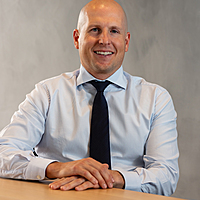Why this year’s Berkshire Hathaway meeting will be the most important in its history
For decades, the Berkshire Hathaway annual meeting has been a celebration of timeless investing wisdom, led by Warren Buffett and Charlie Munger. In 2025, the atmosphere will be different. This year’s gathering marks a profound shift — not just in leadership, but in the very identity of Berkshire Hathaway itself.
Investors are no longer simply seeking insights. They are coming to glimpse the future of one of America's most extraordinary companies at a historic crossroads.
The End of an Era
Last year’s meeting was the first without Charlie Munger. His wit, clarity, and ability to distil complexity into simplicity were deeply missed.
Now, attention turns entirely to Warren Buffett. At 94 years old, Buffett remains a towering figure, but the reality of succession is no longer theoretical. This year’s meeting could well be his swan song — the final time shareholders gather to hear directly from the man who guided Berkshire from a struggling textile mill into one of the most successful conglomerates in history.
It marks the nearing of the final page of an extraordinary era in business and investing.
The Questions That Matter
As shareholders and investors gather in Omaha, several critical questions loom:
- How prepared is Greg Abel to lead the Berkshire empire?
- Will Berkshire’s decentralised model — the "trust the managers" philosophy — endure without Buffett’s gravitational pull?
- How will investment decisions evolve under Todd Combs and Ted Weschler?
- Will Berkshire maintain its patient capital allocation discipline, or shift toward dividends?
- Can Berkshire’s distinctive culture — its greatest hidden asset — be preserved in a new era of leadership?
More than any individual decision, the greater test for Berkshire will be whether it can preserve the culture that has underpinned its success. Berkshire’s decentralised model, based on trust, autonomy, and rationality, is fragile by nature. Without Buffett’s singular influence, maintaining that culture across dozens of subsidiaries and generations of managers will require careful stewardship — and perhaps more deliberate leadership than ever before.
Why This Meeting Matters for All Investors
Berkshire Hathaway is more than a company; it is a blueprint for capital allocation and long-term thinking.
Whether you own Berkshire shares or not, what happens next will influence broader markets, set examples for corporate governance, and offer a real-time study in leadership succession — a challenge many global businesses will face in the coming decade.
One telling signal of Berkshire’s positioning is its enormous holding in U.S. Treasuries, now exceeding $334 billion. Whether this reflects deliberate caution or a scarcity of compelling opportunities is unclear. What is clear is that Berkshire’s vast liquidity will either be a strategic advantage — or a critical test — for the next generation of leaders. When and how they move from defence to offence will define Berkshire’s returns and reputation in the post-Buffett era.
A Moment in Investing History
This year’s meeting may be the last time investors hear directly from Warren Buffett in his familiar, expansive form. It is a rare inflection point in investing history — one that will be studied, debated, and reflected upon for years to come.
It is a moment to celebrate an extraordinary legacy, reflect on timeless principles, and observe how the greatest capital allocator of our time sees a world facing rising uncertainty, including an escalating trade war with China.
Conclusion
The questions facing Berkshire today — about leadership, discipline, and capital allocation — are the same questions every serious investor must consider.
The principles that built Berkshire’s extraordinary success — patience, resilience, and the relentless pursuit of enduring value — remain as vital today as ever. In a world increasingly dominated by short-term thinking, we remain committed to a long-term horizon: allocating capital carefully, investing in businesses with durable competitive advantages, and positioning for sustainable growth across cycles.
The 2025 Berkshire meeting is more than just a milestone for one company. It is a reminder that true investing excellence is not about reacting to the present — it is about having the foresight, discipline, and courage to build for the future.

2 topics
